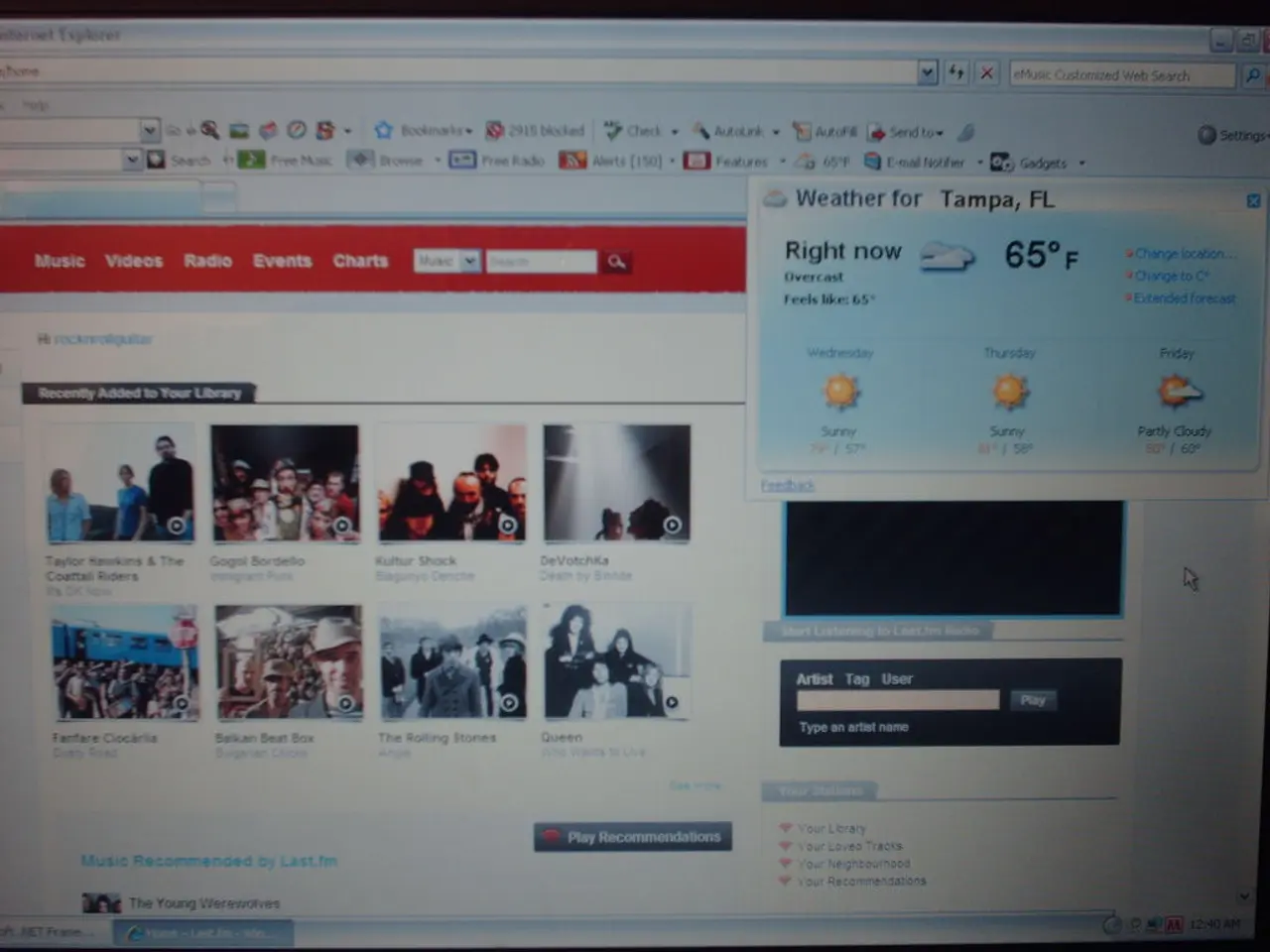Smartphone Users Facing a Potential Risk with the Implementation of Pornography Restrictions
In the digital age, the use of Virtual Private Networks (VPNs) has become increasingly popular, especially for accessing content that might be restricted. However, a growing concern is the use of free VPNs, particularly those connected to the Chinese government and military.
Many free VPNs embed malware or trackers on user devices to monetize data, potentially making users more vulnerable to attacks. They often log user activity and sell data to third parties or government authorities, a practice that can lead to significant privacy violations.
The use of these VPNs in China is particularly risky. Government-approved free VPNs are required to log data and share it with the Chinese authorities, which means users' communications and data can be directly accessed by the government. This results in a loss of privacy and potential surveillance.
Moreover, some VPNs use outdated or low-strength encryption protocols, making interception easier. Vulnerabilities like IP leaks, improper configuration, and VPN hijacking can expose users despite using a VPN.
The trust model of VPNs is fundamentally broken if the provider is linked to state security apparatus. In such cases, the VPN can act as a direct surveillance tool rather than a privacy service.
In light of these risks, it is strongly recommended to use a reputable paid VPN with strong encryption and strict no-logs policies, especially one trusted to work in China without cooperating with government surveillance.
Researchers have found that many free VPNs are connected to the Chinese government and military, underscoring the importance of choosing a VPN provider carefully. It is advisable to only use well-known companies for VPN services.
In the U.S., VPN usage also increases whenever a new ban is enforced, as people use VPNs to get around these restrictions. In the U.K., a similar law has been passed, causing a significant increase in VPN usage, with one VPN app maker reporting a 1,800% increase in downloads.
It is crucial to download VPNs from trusted sources such as the Google Play Store or Apple App Store to avoid potential risks. Running a VPN service requires money, as it needs powerful servers and strong internet connections. Therefore, VPNs that offer their services for free may be cutting corners in terms of security and privacy.
In conclusion, using free VPNs linked to the Chinese government and military puts users at high risk of surveillance, data logging, malware, weak security, and legal consequences. The quote, "If you're not paying for the product, then you are the product," attributed to James Maude from BeyondTrust, encapsulates this risk well. It is safer to use a paid VPN or one from a trusted company. Simon Migliano from Top10VPN advises against using VPNs owned by Chinese companies.
Lastly, remember to keep Play Protect on if using Android, and never turn it off to install a risky VPN app. It is also advisable to avoid VPNs with unclear in-app purchases and to use VPNs that have a clear monthly or yearly fee. The advice given in this article is for the context of the article published on 30th July 2025.
The risks associated with using free VPNs, particularly those connected to the Chinese government and military, can lead to significant privacy violations due to the embedding of malware, data logging, and the selling of user data to third parties and government authorities. Instead, it is recommended to use a reputable paid VPN with strong encryption and strict no-logs policies, especially those proven to work in China without cooperating with government surveillance. Moreover, the quote, "If you're not paying for the product, then you are the product," underscores the risks associated with free VPNs in terms of privacy and potential surveillance.




